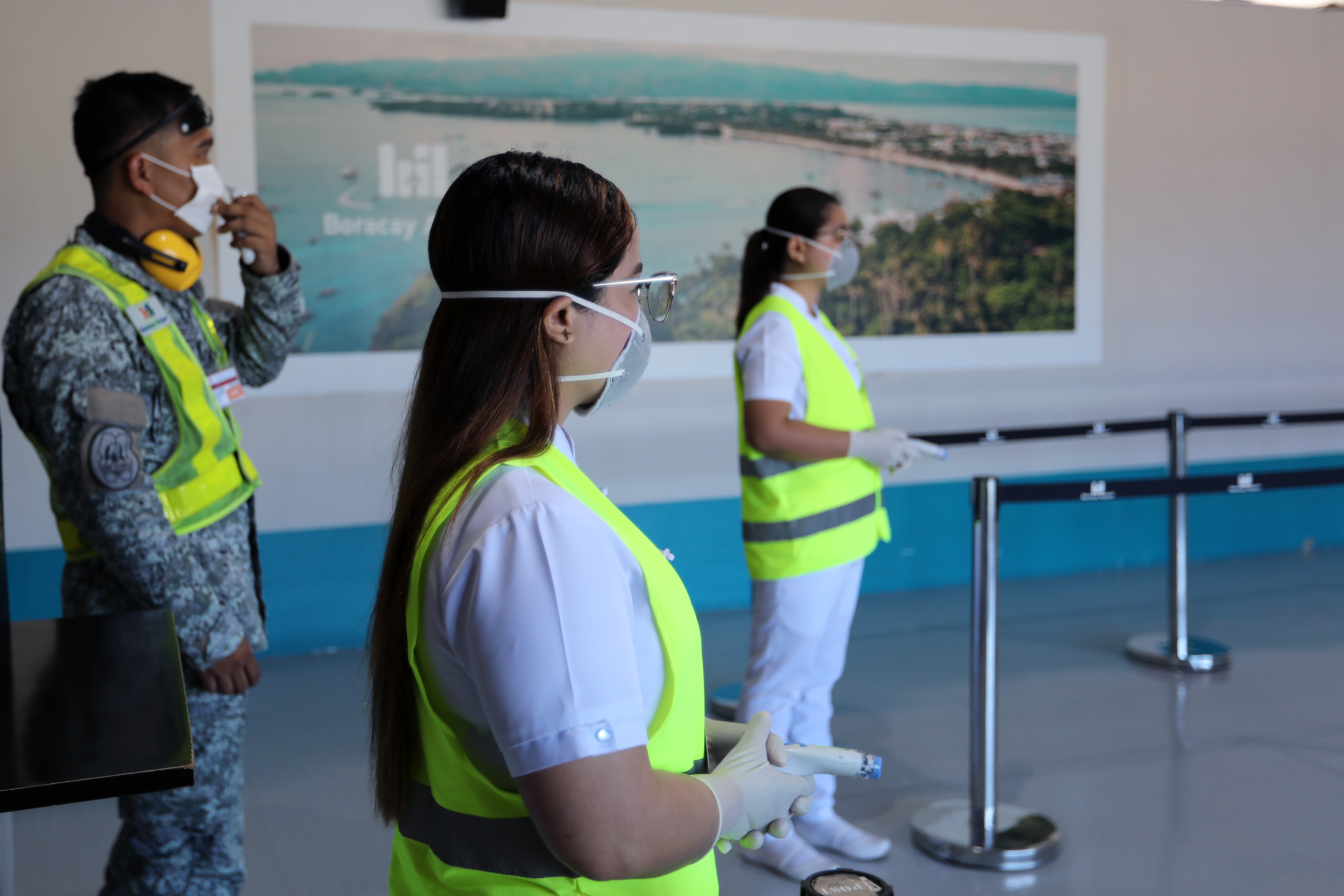Technology
DOST to focus on researches that will help solve Covid-19 woes

FILE: ALERT VS. COVID-19. Personnel of Caticlan Airport in Boracay Island await foreign and local tourists who will be given temperature checks upon entering the airport. Temperature scanning is one of the measures being implemented in various establishments and places as part of efforts to contain the spread of the coronavirus disease 2019 (Covid-19) in the country. (PNA photo by Joey O. Razon)
MANILA – Department of Science and Technology (DOST) Secretary Fortunato dela Peña on Wednesday said the department will focus first on researches that have the potential to address the coronavirus disease 2019 (Covid-19).
“Maybe we will focus first on taking advantage of some researches which we have already supported, and which have the potential to help in addressing the Covid-19 problem now,” he told the Philippine News Agency (PNA).
Dela Peña mentioned the Ateneo de Manila University’s study on whether virgin coconut oil (VCO) components could be used as a safe antiviral agent against the novel coronavirus.
“While it (study) was more on developing standards, there is some knowledge derived from it which we can extend. Since it is widely cited in publications that VCO has anti-viral properties, we can look into that through some tests on Covid-19. We can have it tested in Singapore where they have the facilities in place,” he said.
Ateneo’s study was done in partnership with the Duke-National University of Singapore.
Another DOST-funded study that ADMU did, in partnership with the Department of Health (DOH), was the Feasibility Analysis of Syndromic Surveillance using Spatio-Temporal Epidemiological Modeler (FASSSTER) for early detection of diseases.
The researchers developed the FASSSTER app for visualizing the spread of diseases, using data from the Philippine Integrated Disease Surveillance and Response (PIDSR) system, Electronic Medical Records, and SMS-based reports of primary care facilities.
“This app might be able to predict how long this Covid-19 problem will last, given the data that DOH is collecting and compiling in relation to the outbreak,” he said.
Currently, the FASSSTER app is being used to create predictive models and visualize possible scenarios of outbreaks of dengue, typhoid fever, and measles, at specified time periods. According to DOST, the researchers will enhance the system so it could be used for Covid-19 surveillance and response.
Diagnostic kit
Dela Peña said the DOST is also looking to locally produce raw materials that can be used for test kits if a patient is positive for the coronavirus.
The DOST, he added, is studying possible partnerships with some of its partner institutions abroad who are already advanced in the field of vaccine development.
“DOST’s support to the diagnostics kit research of UP (University of the Philippines) Manila started in 2009.
Their (study and development of) a dengue diagnostic kit was already finished and has been commercialized. Soon, the one for leptospirosis would be released, and there are other things that they develop,” he shared.
When news about the new coronavirus came in December 2019, he said UP immediately sent a proposal, “and they started the study by mid-January”.
A team of researchers from the UP-National Institutes of Health led by Raul Destura developed a diagnostic kit that aims to detect Covid-19.
According to DOST, this kit has a high specificity and efficiency through a one-step multiplex real-time polymerase chain reaction platform. The kit is projected to cost PHP1,320 per test.
On March 9, the Food and Drug Administration (FDA) issued a certificate of exemption for this locally-developed kit for use in field testing coupled with gene sequencing at the Philippine Genome Center.
Dela Peña said Destura got a total research grant of PHP55.72 million, including the research for the dengue diagnostic kit.
“We at the DOST are proud of our local researchers having breakthroughs that will help our country. We are also happy that they could do these with the modest amounts of grants,” he said.
“Things have fallen well into place, including our decision to jointly put up the Philippine Genome Center with UP, and with CHED (Commission on Higher Education) assistance also because it becomes a big help in times like this,” he said.





















